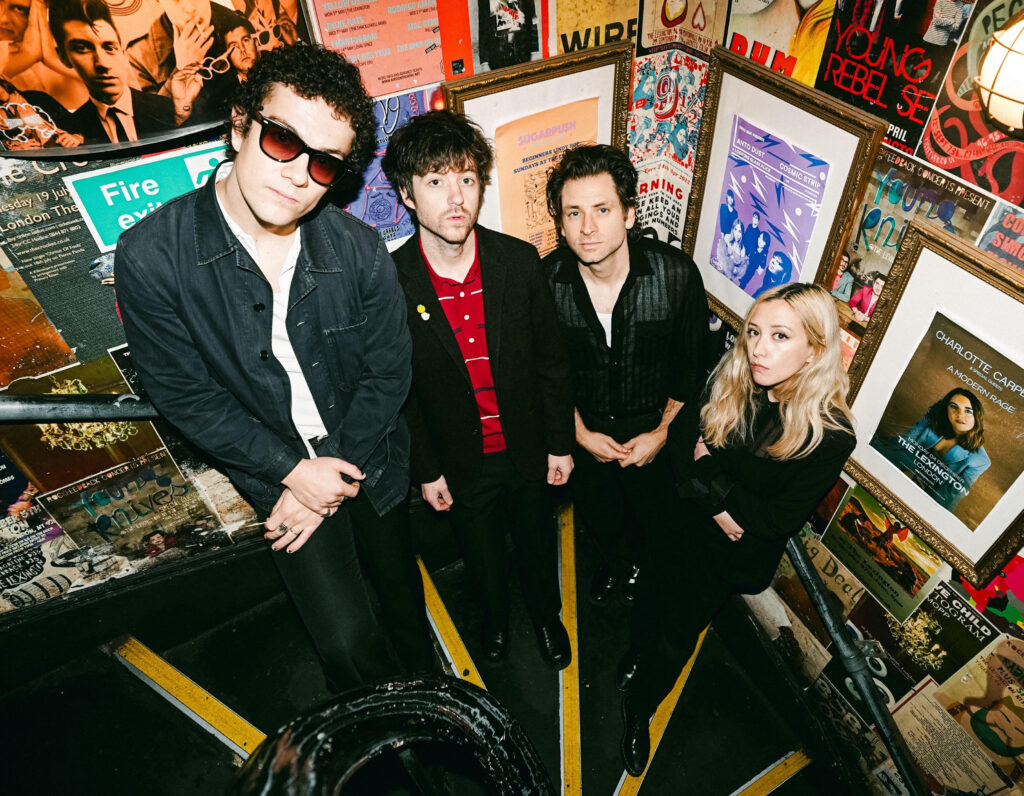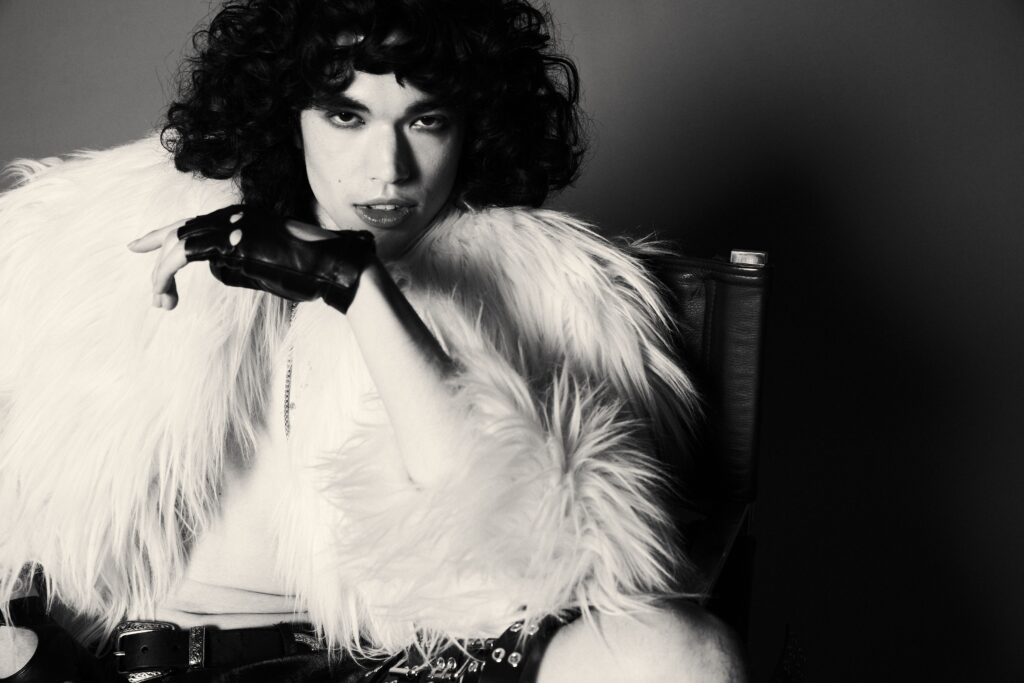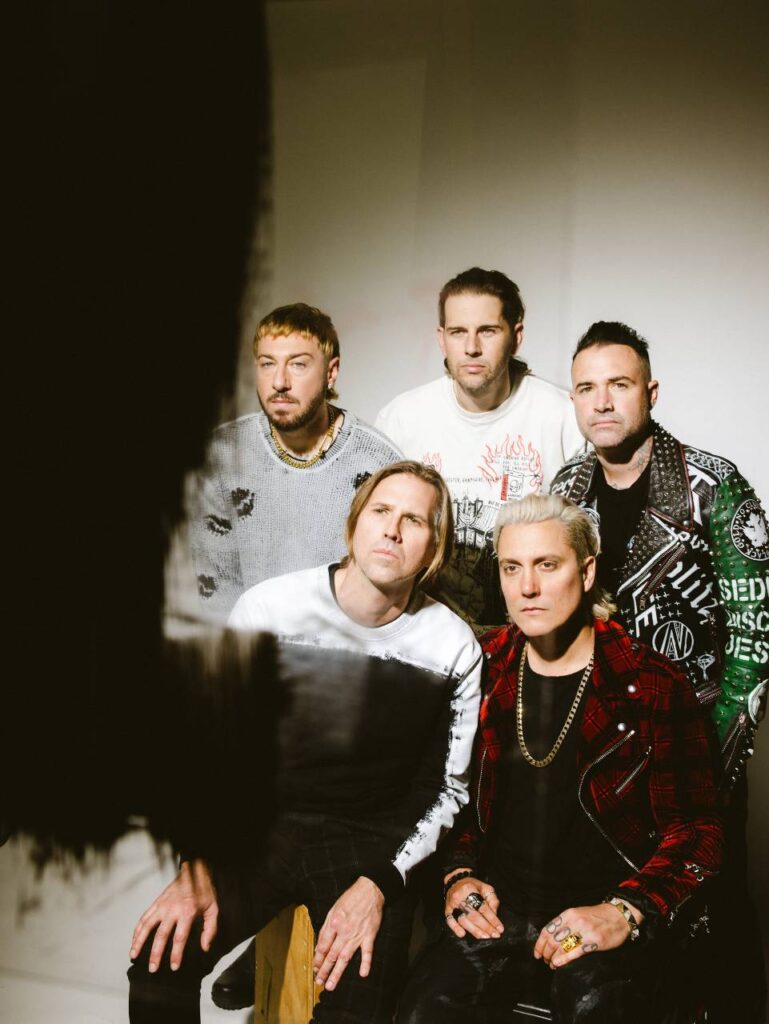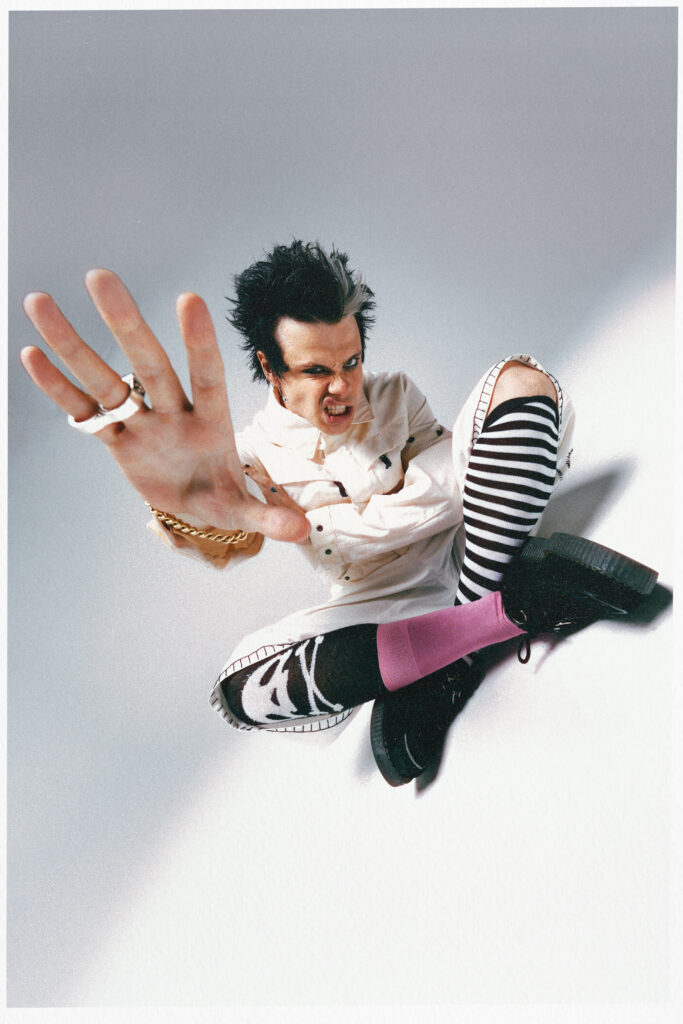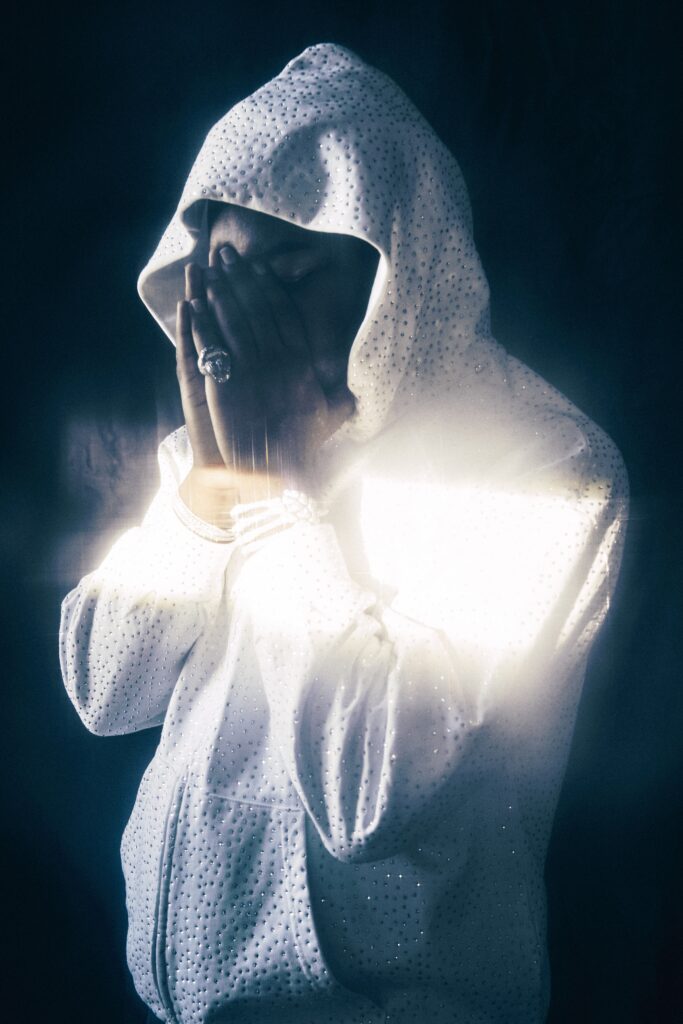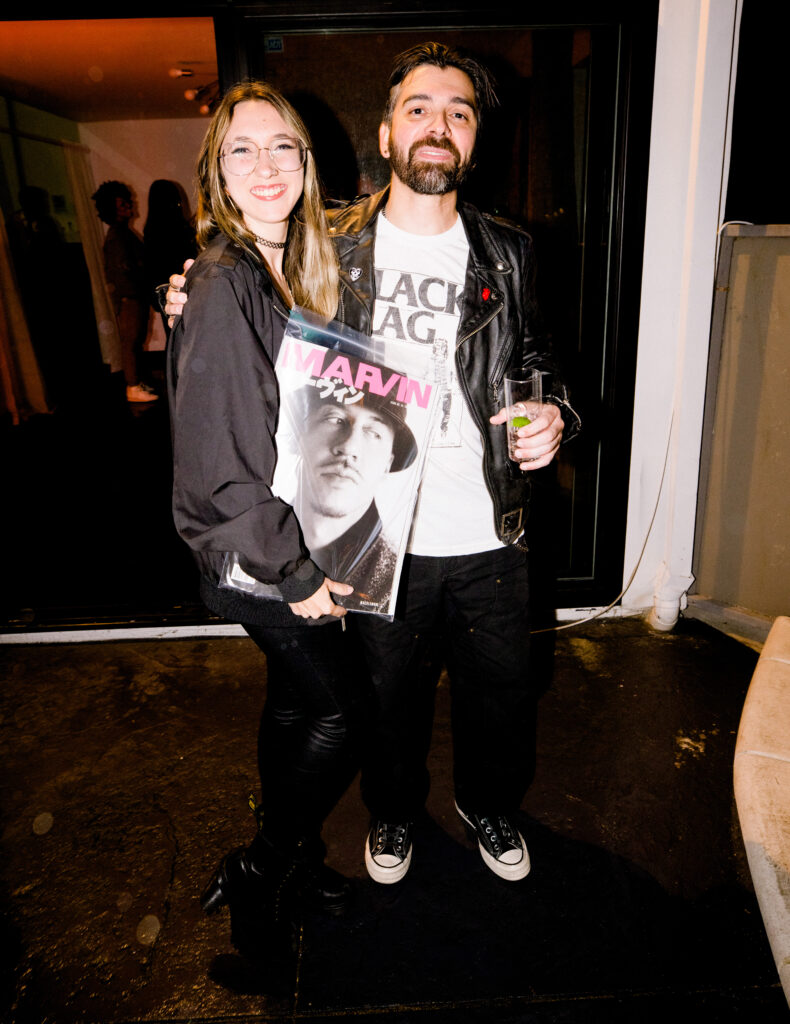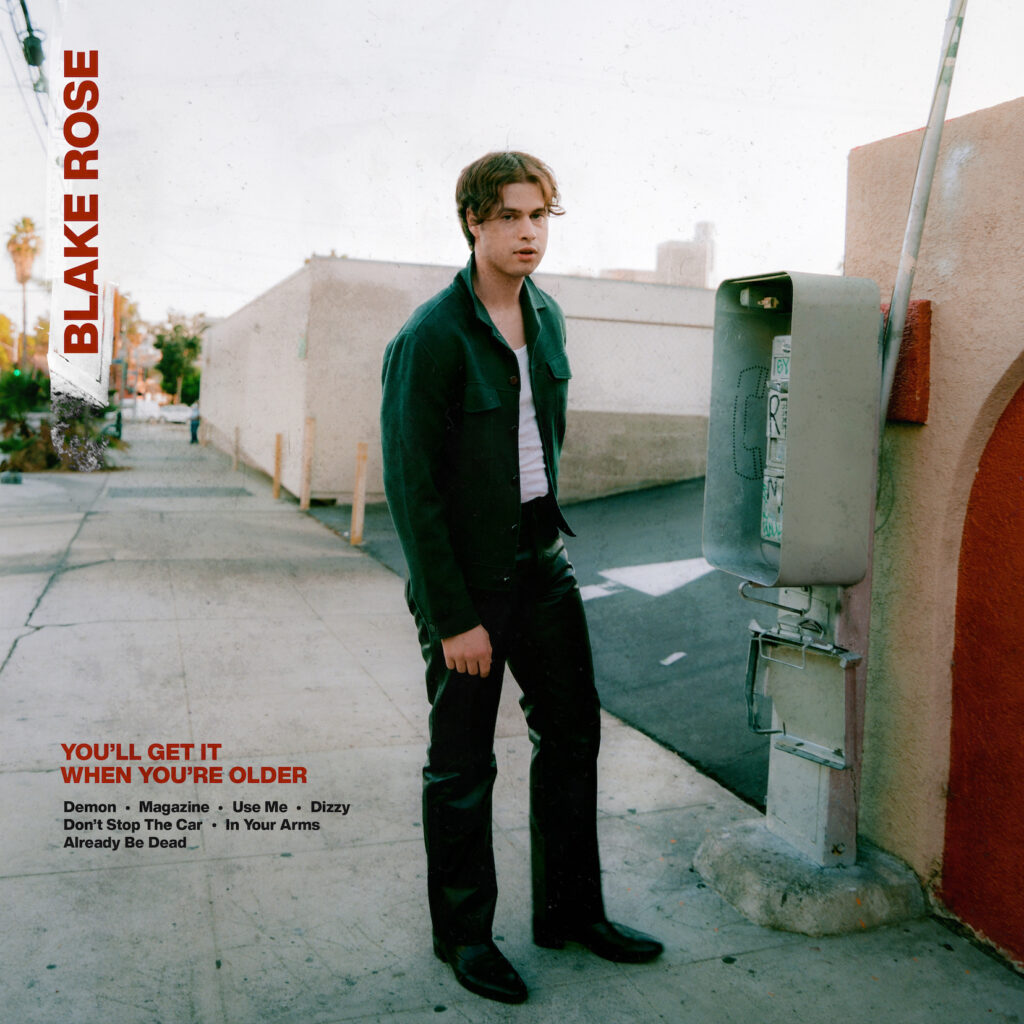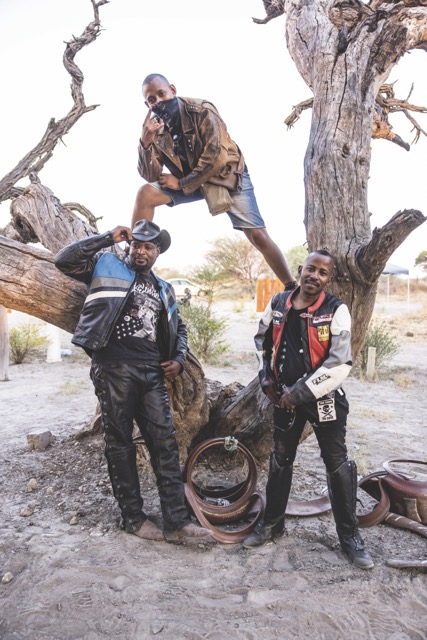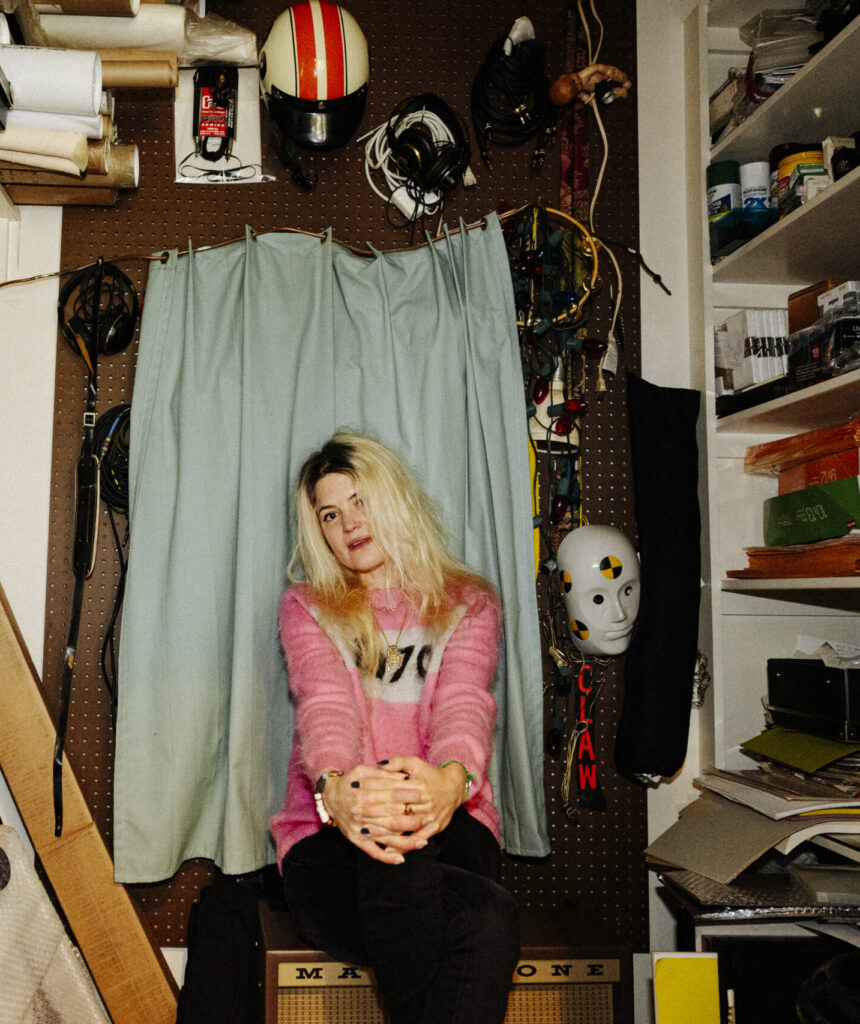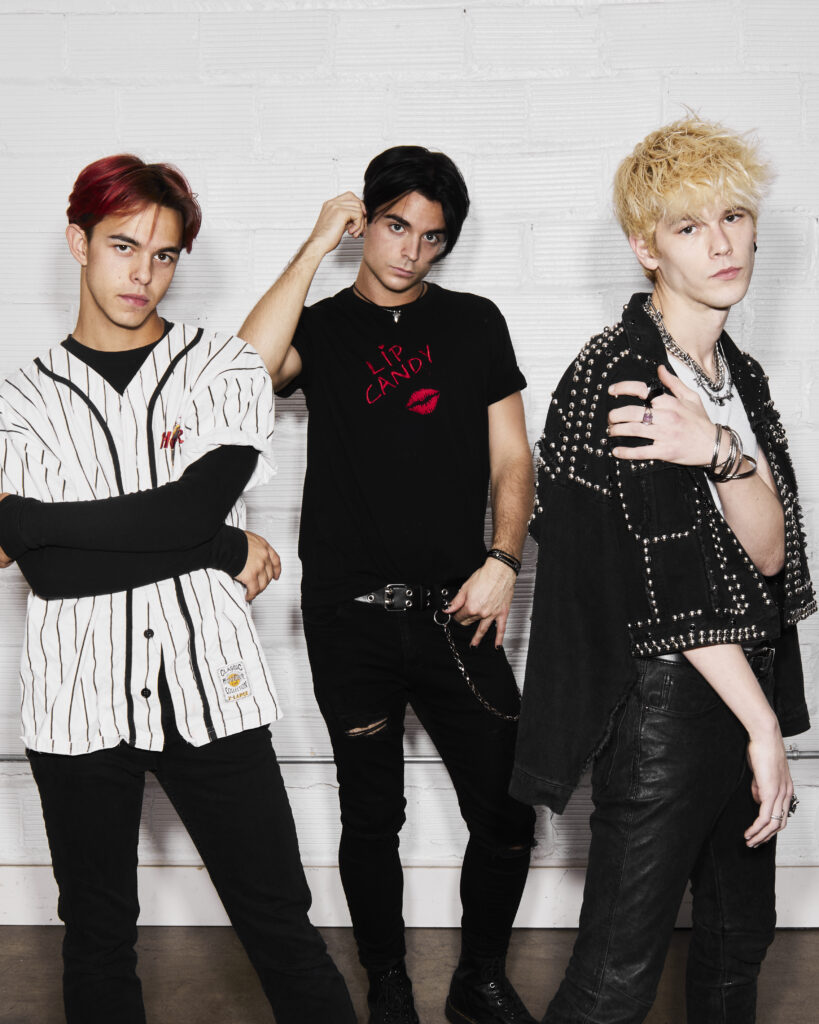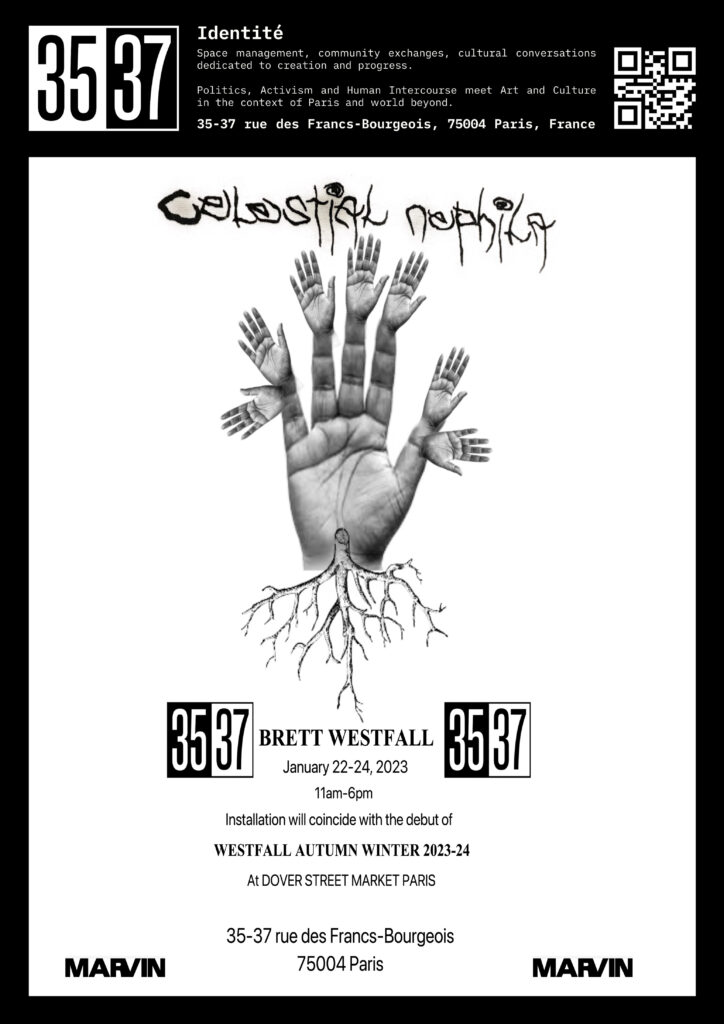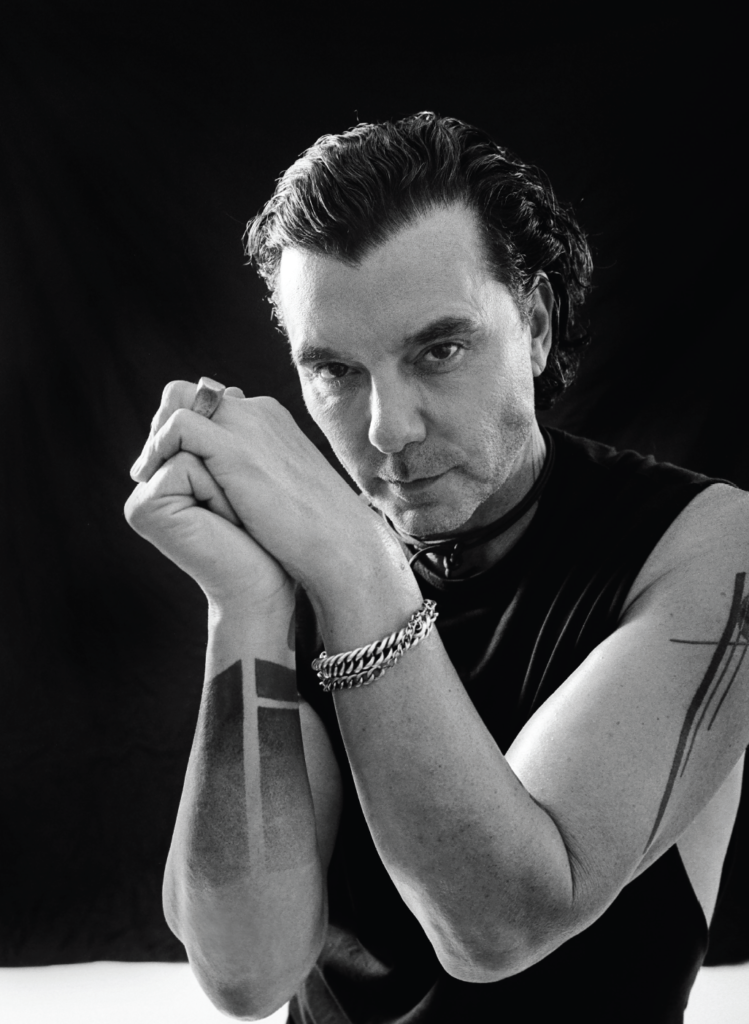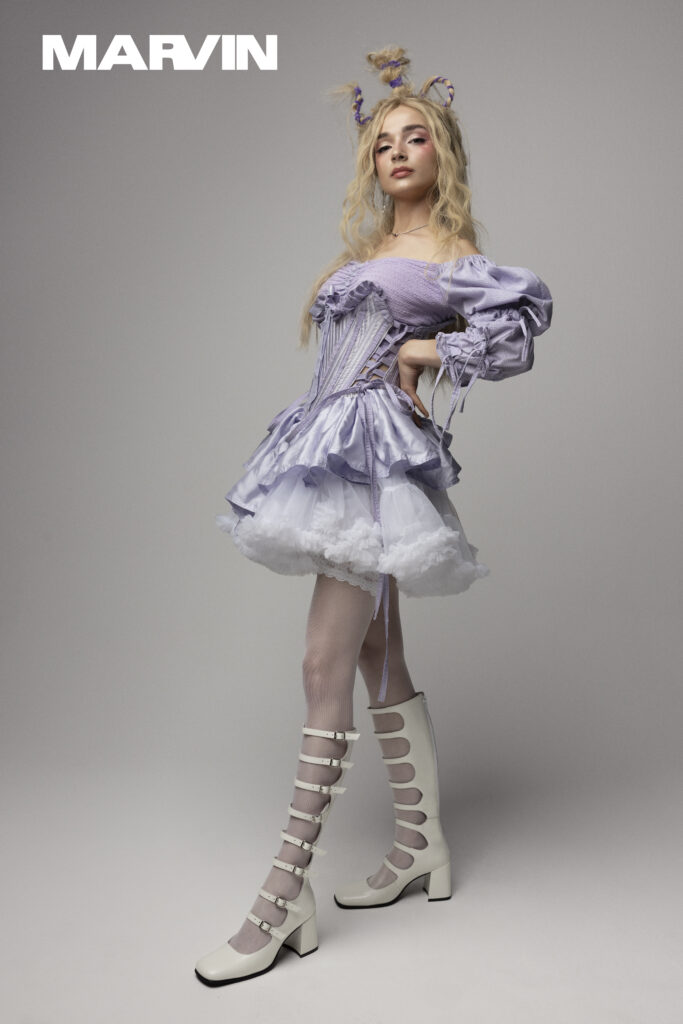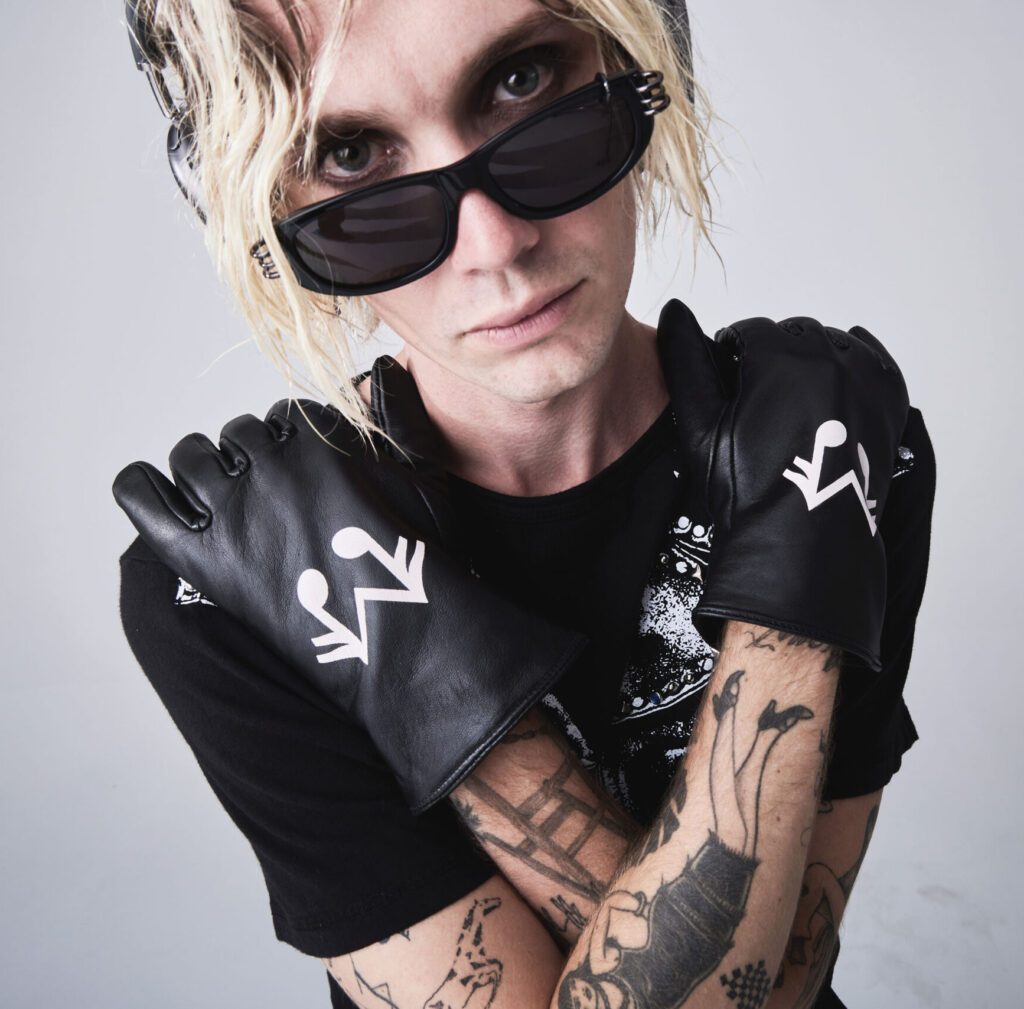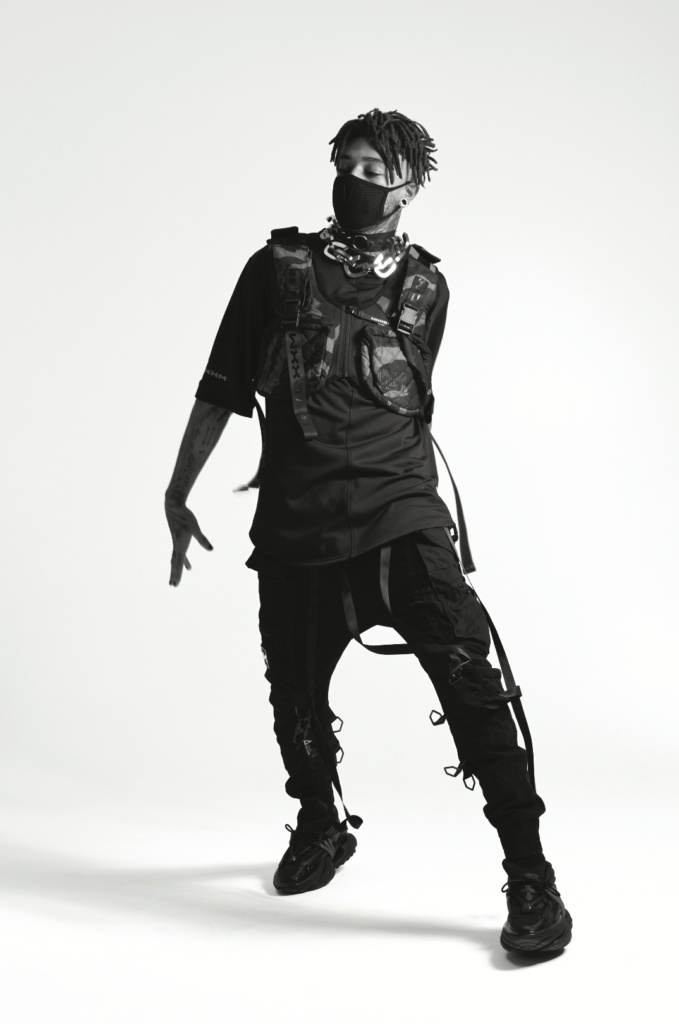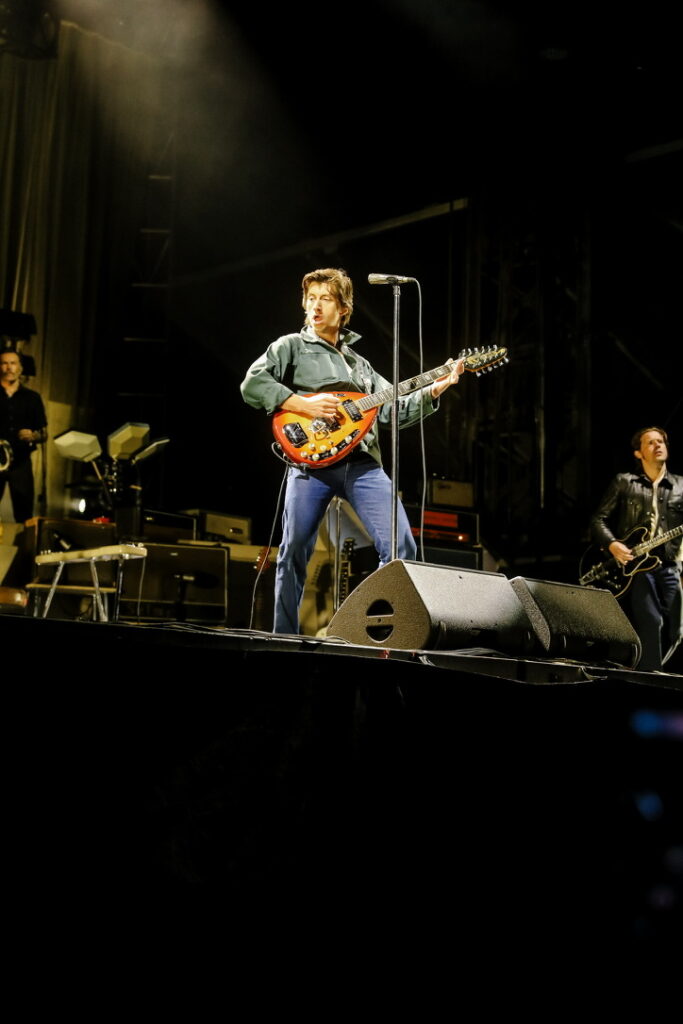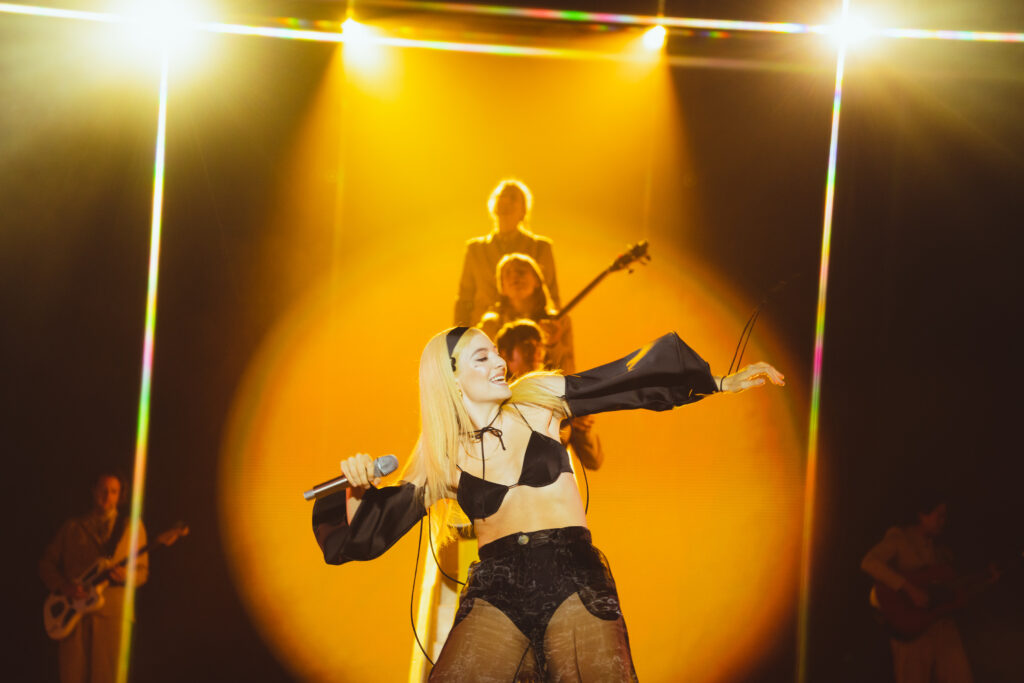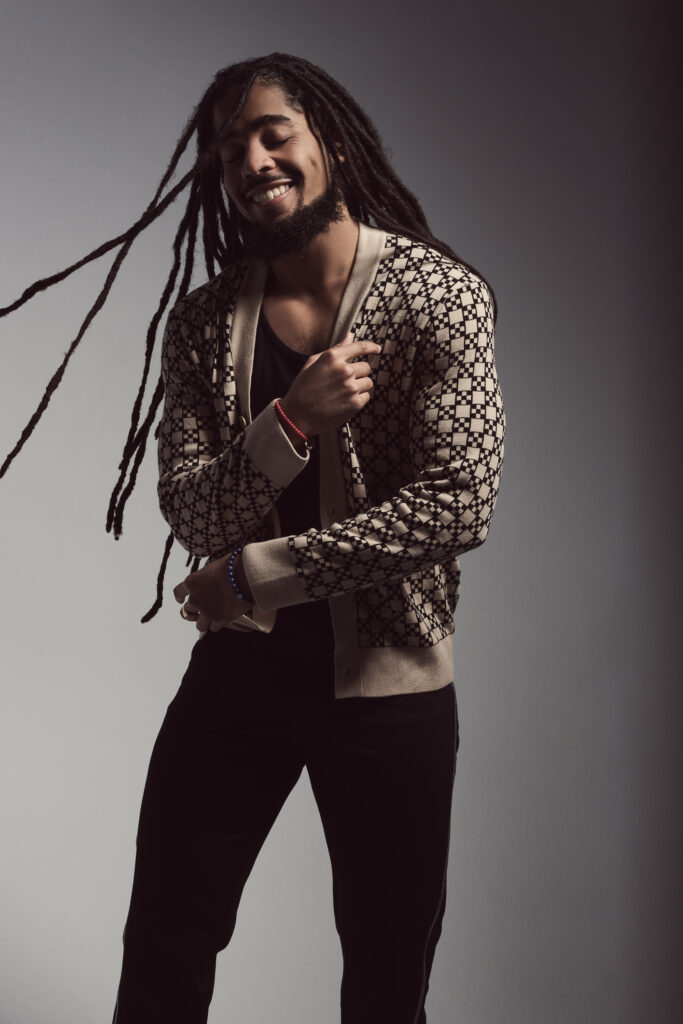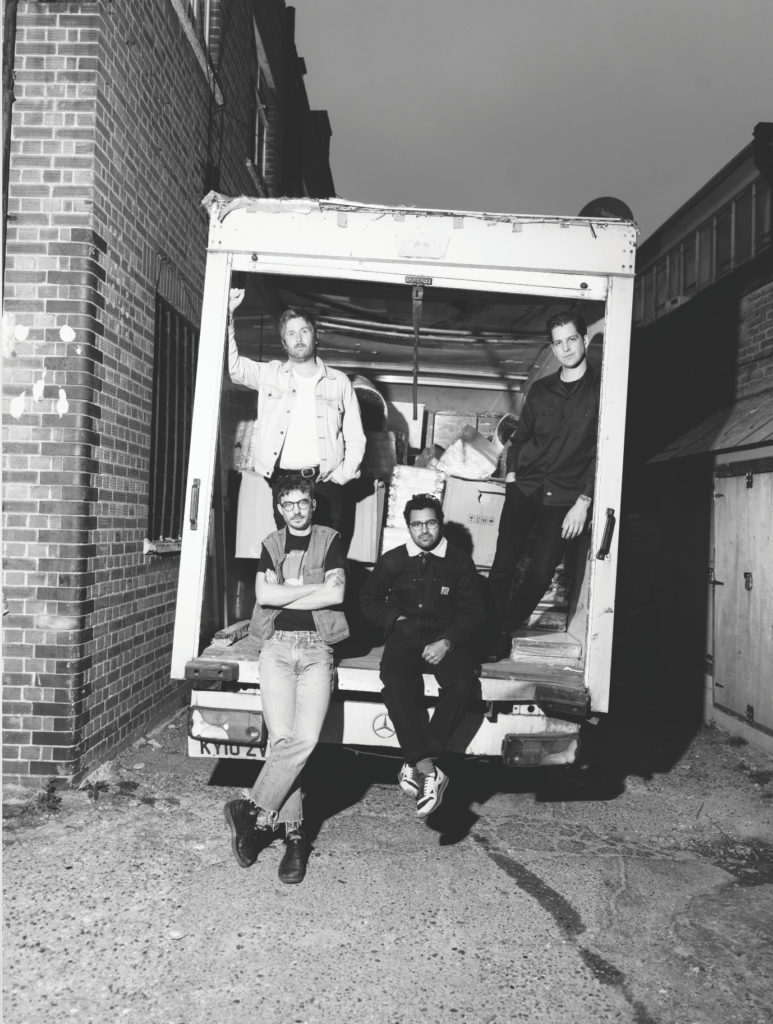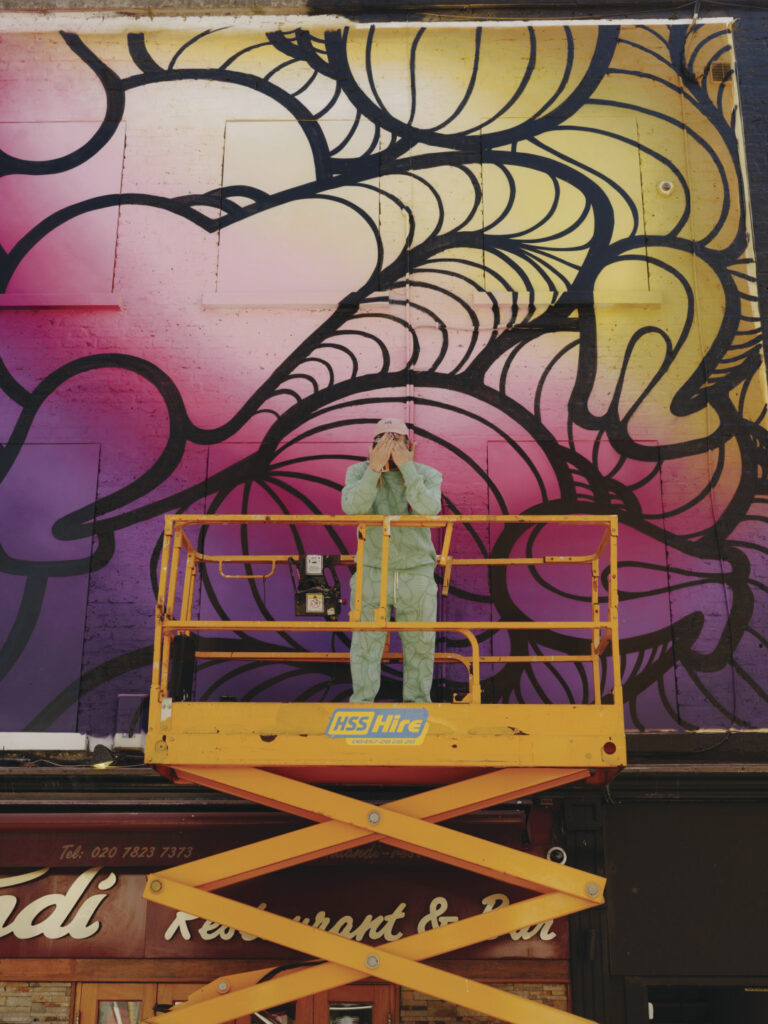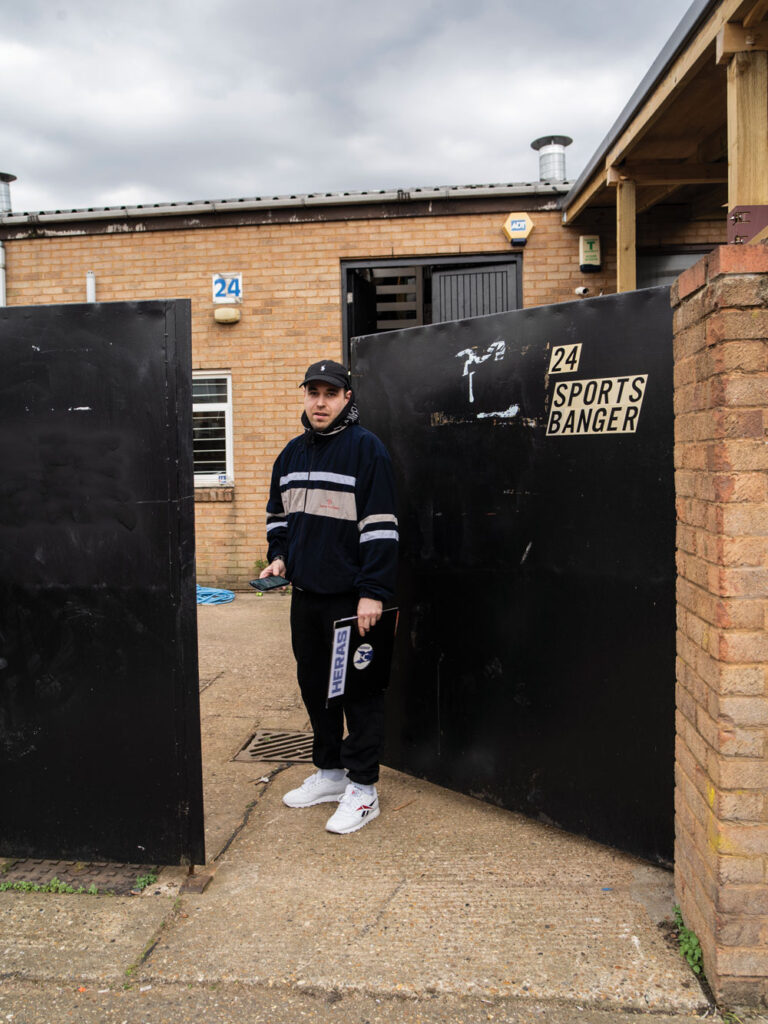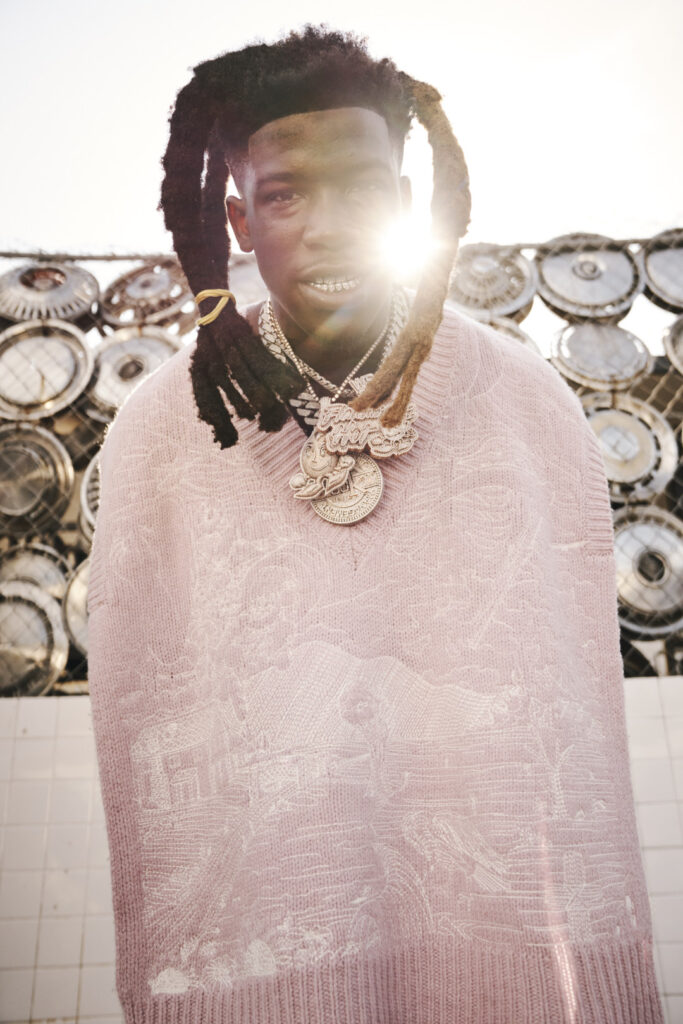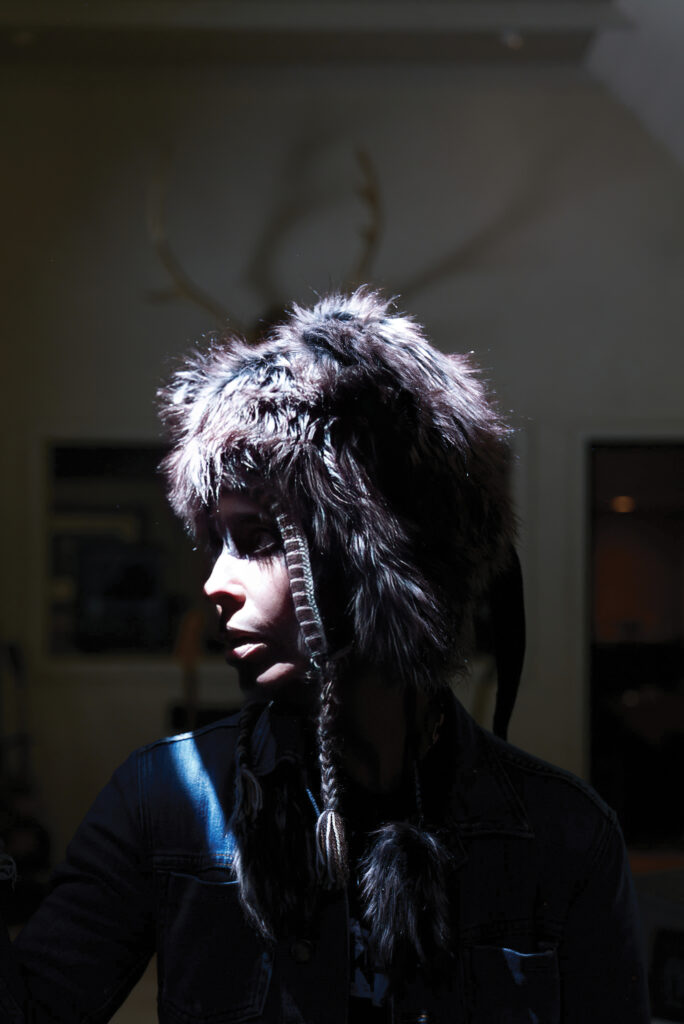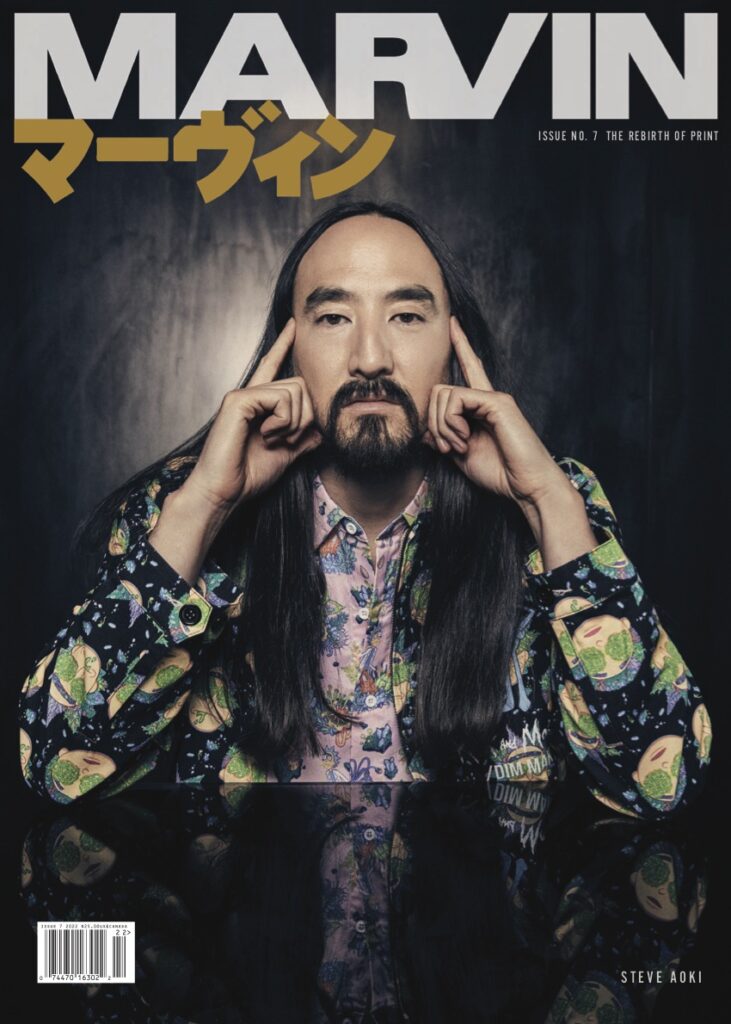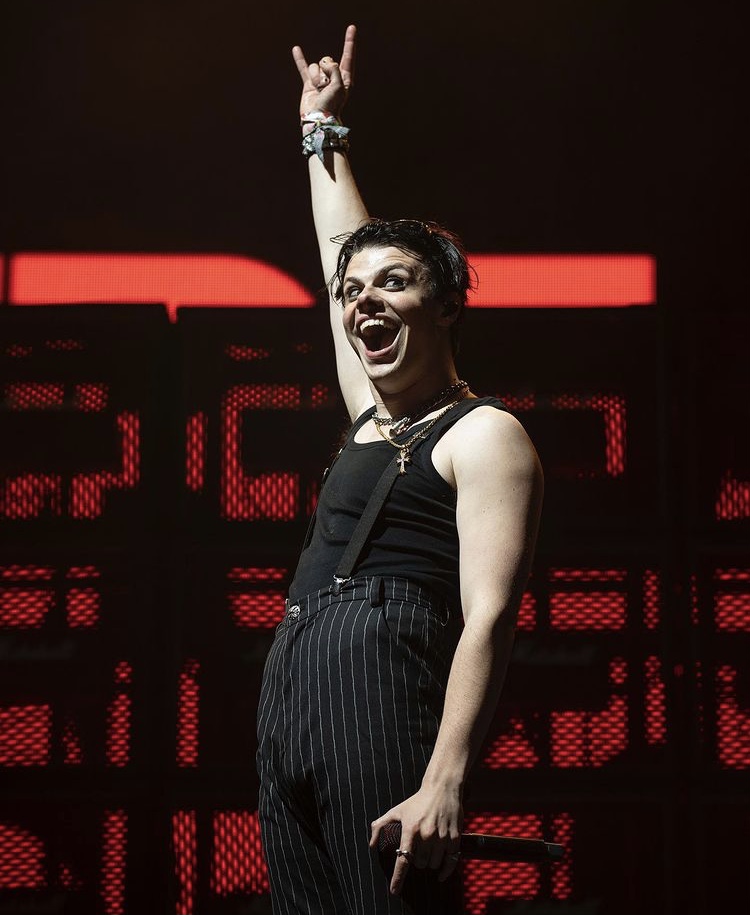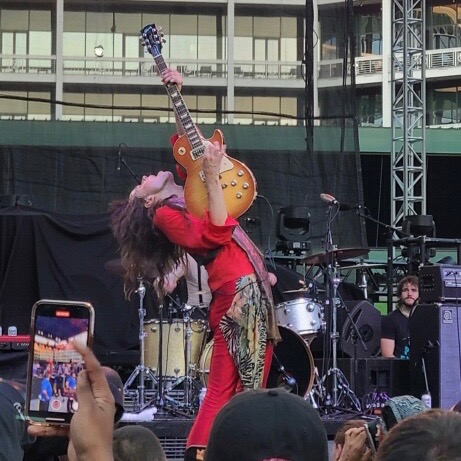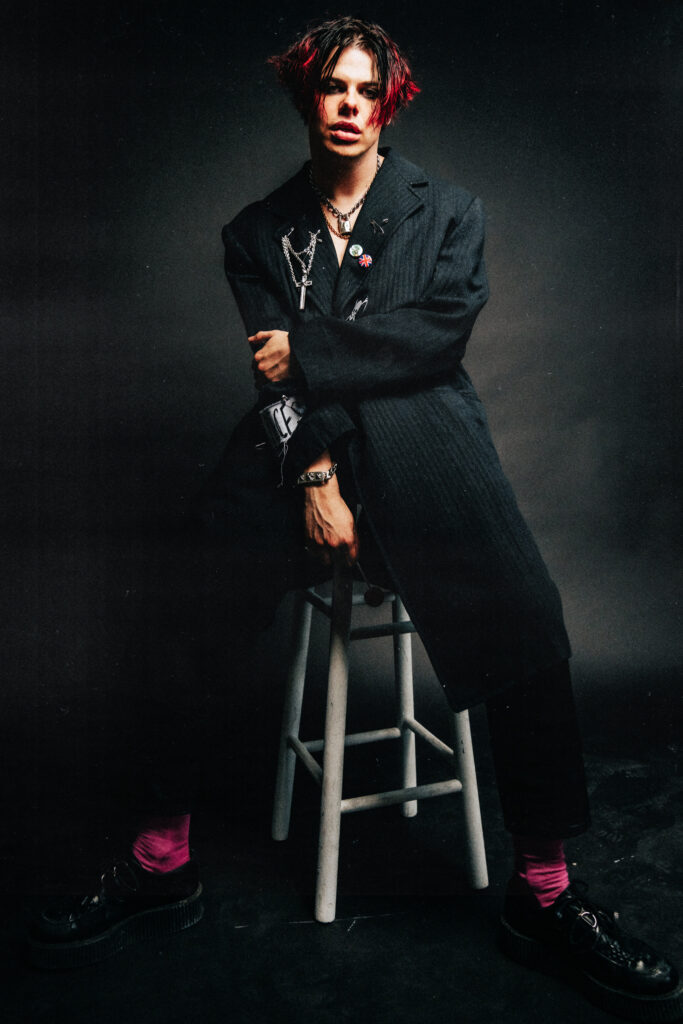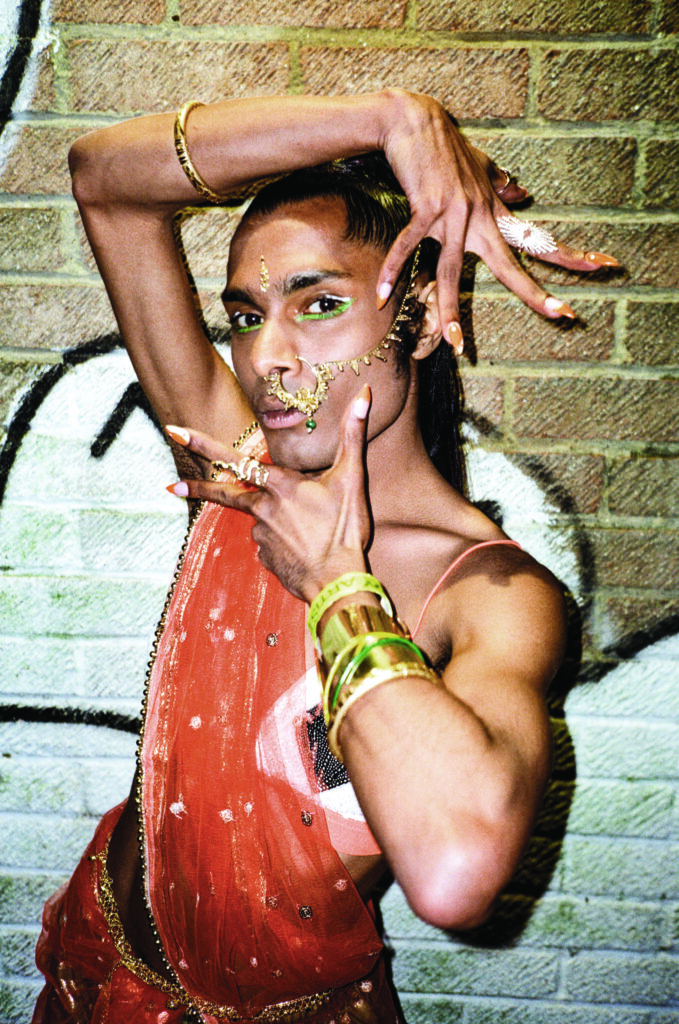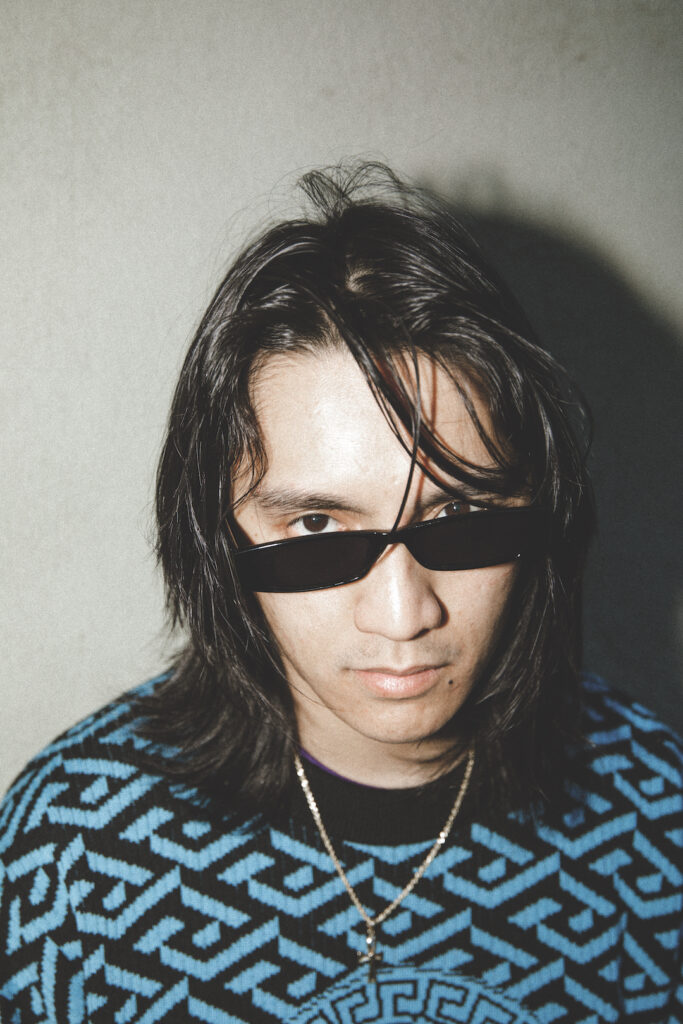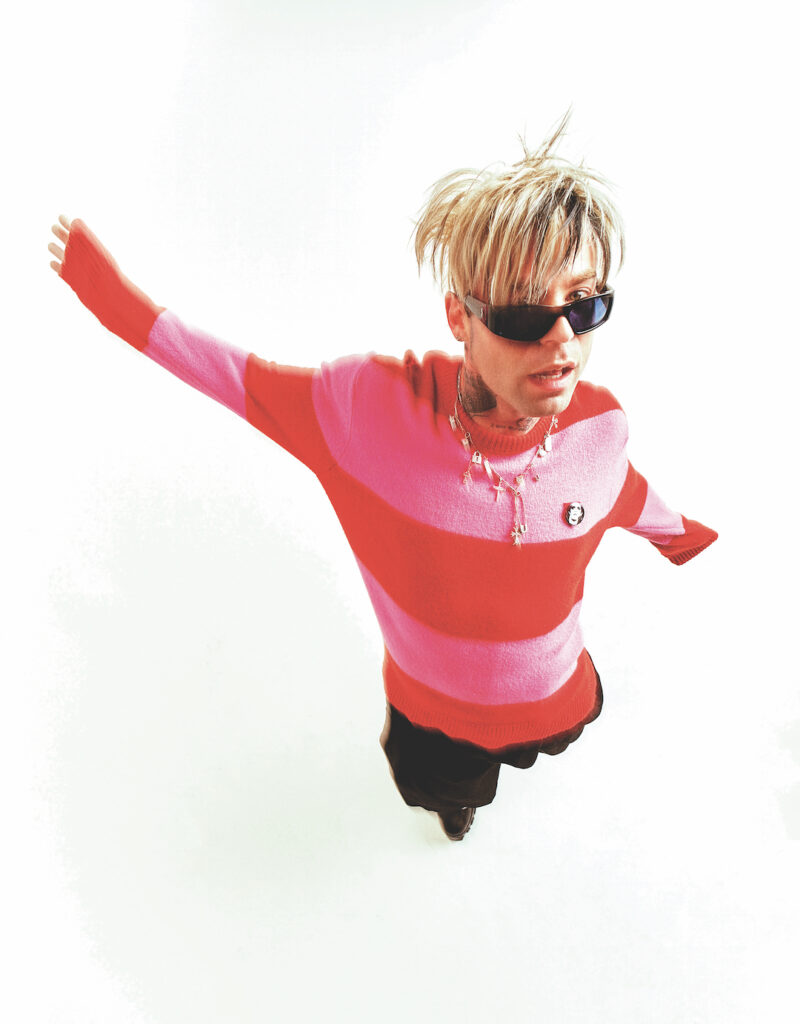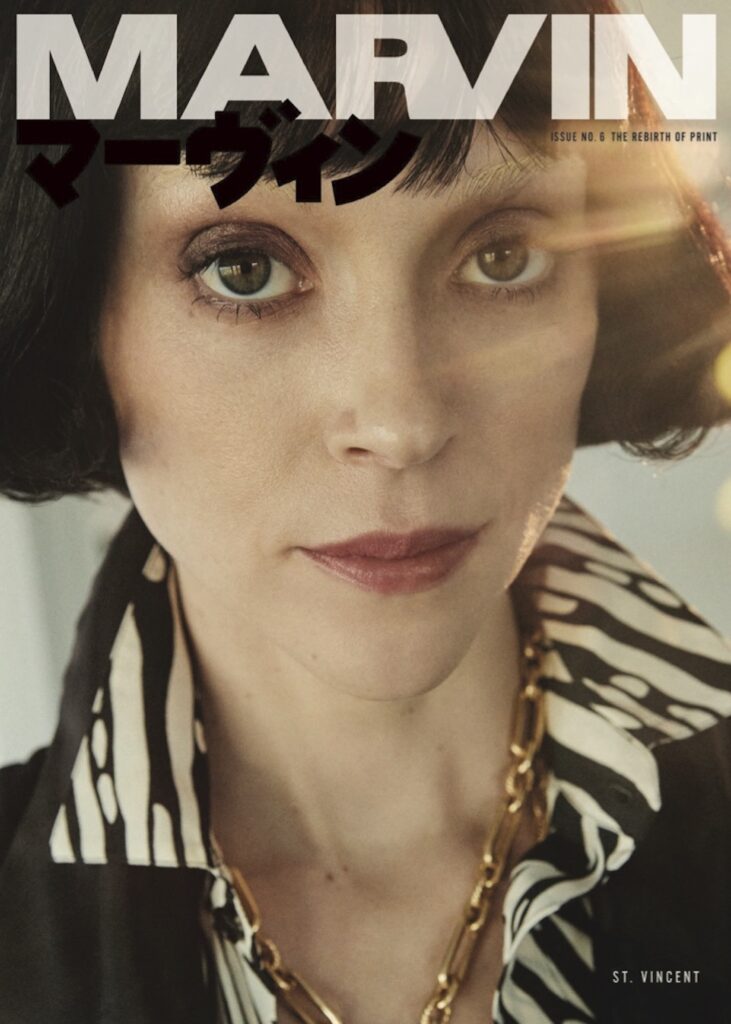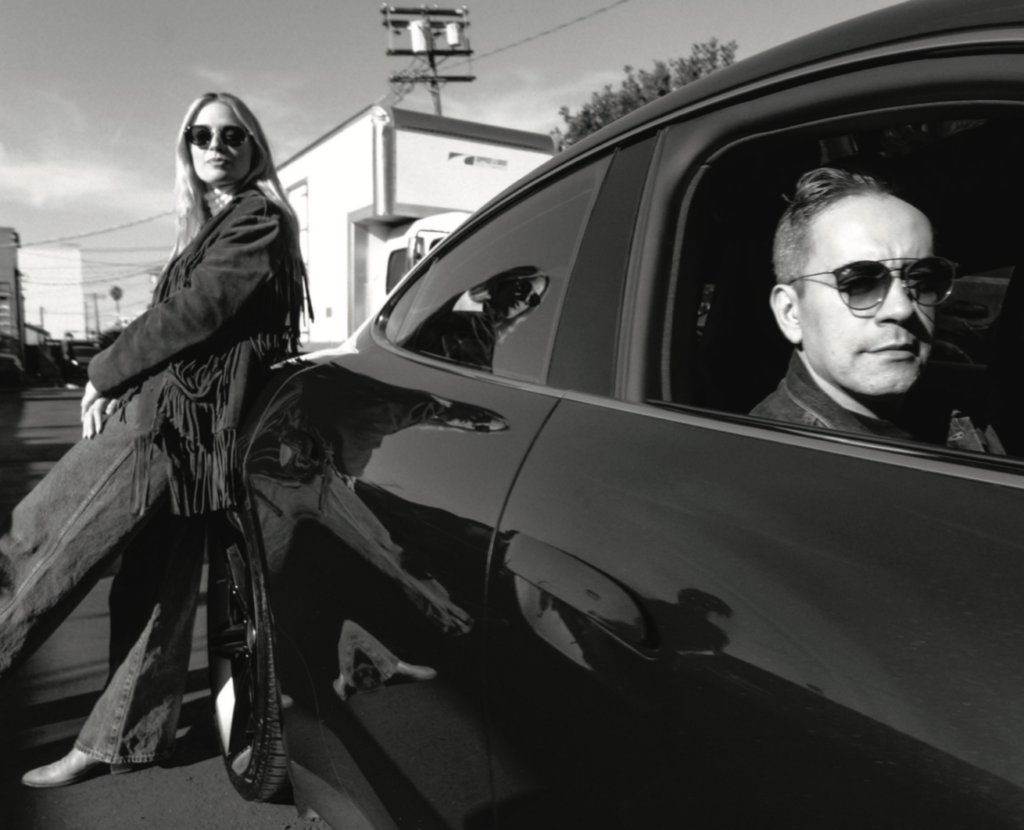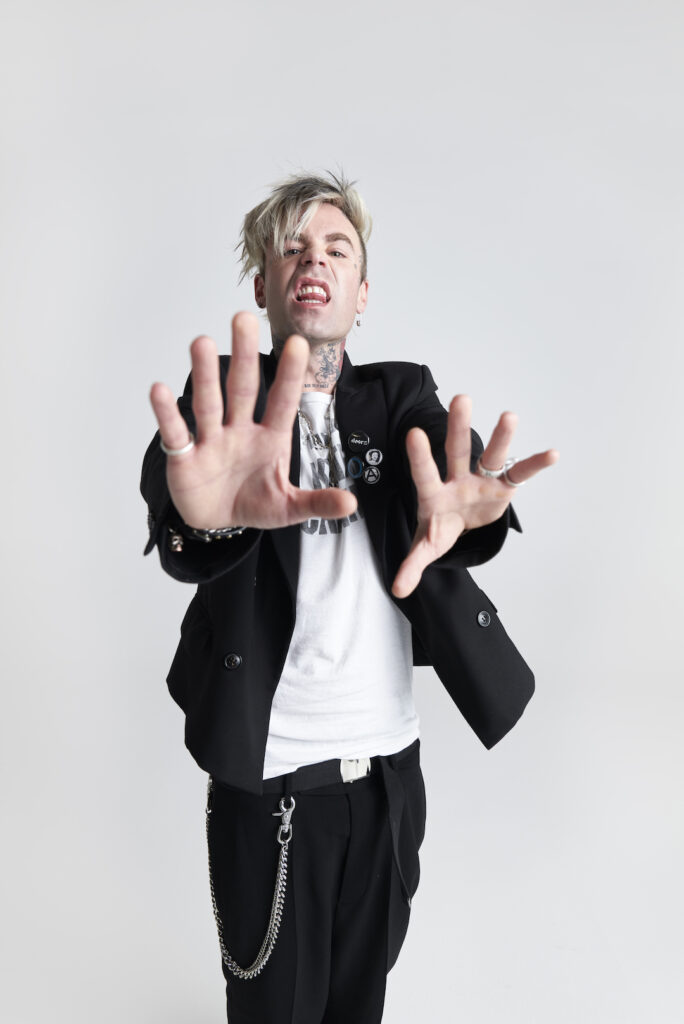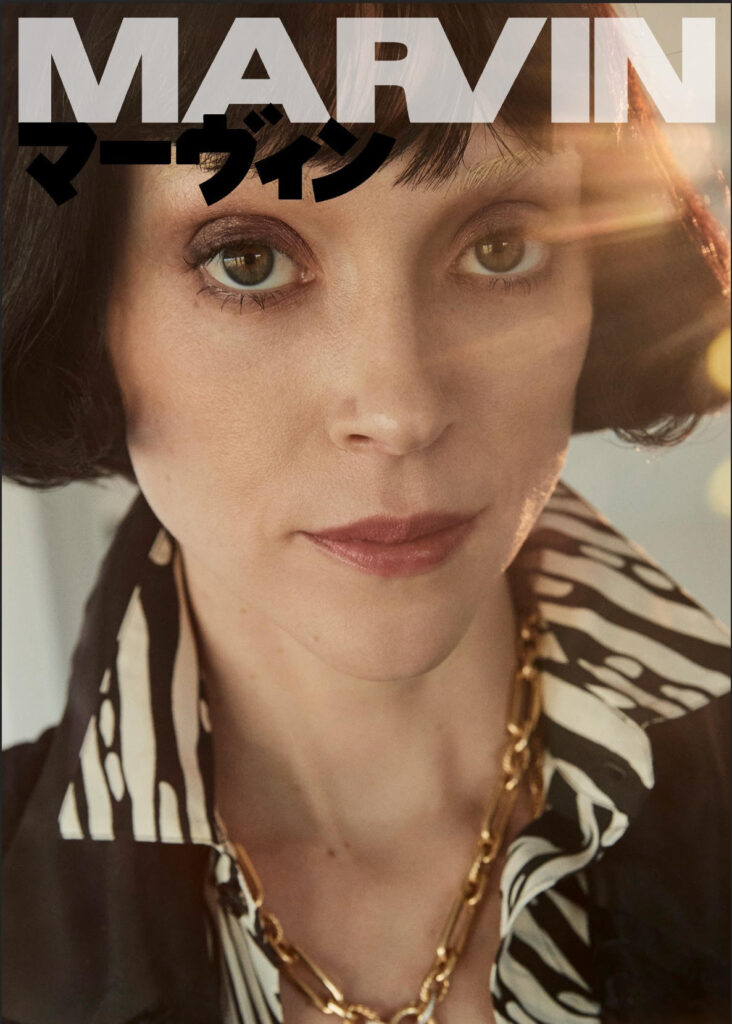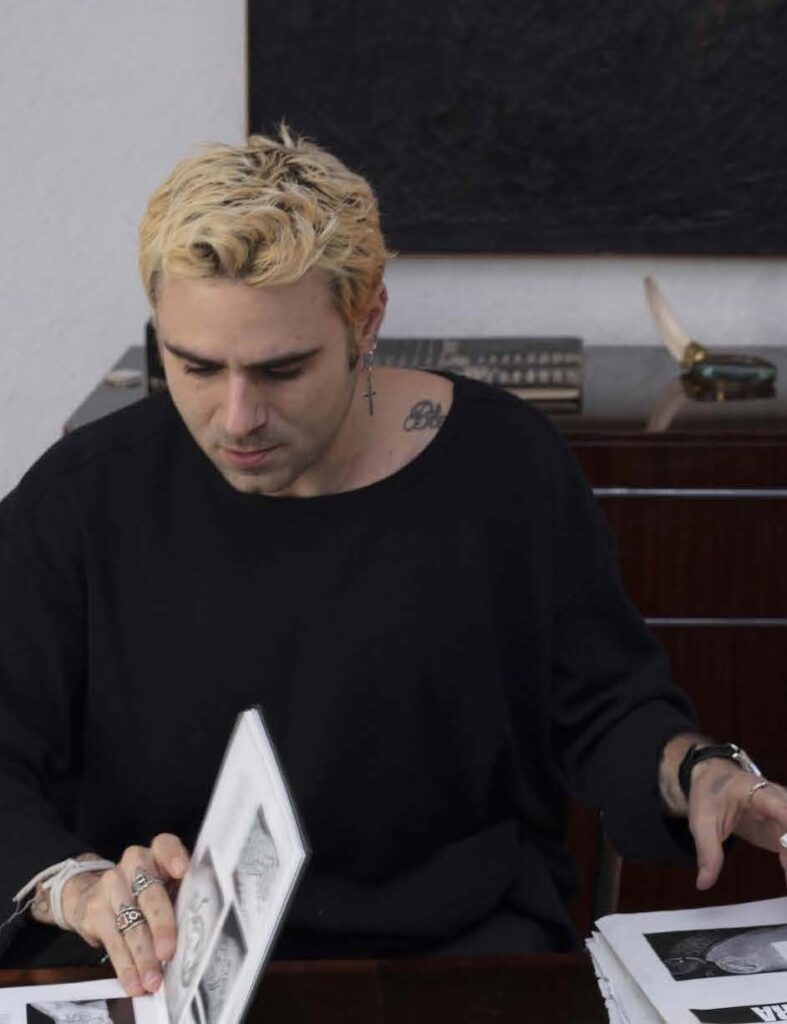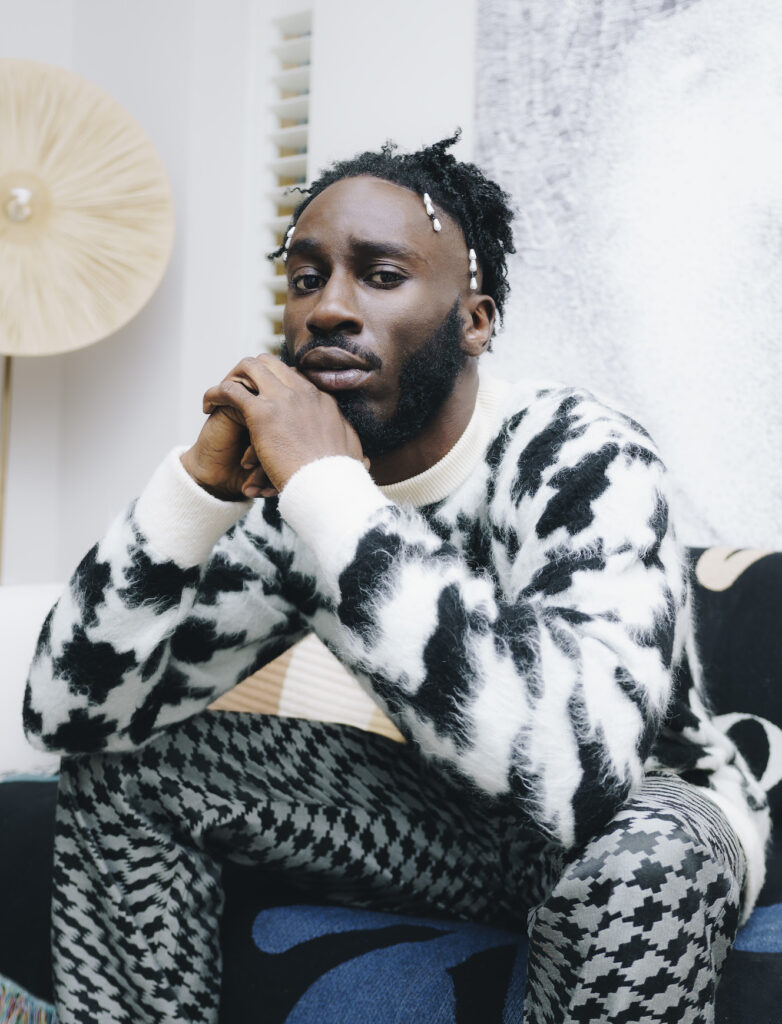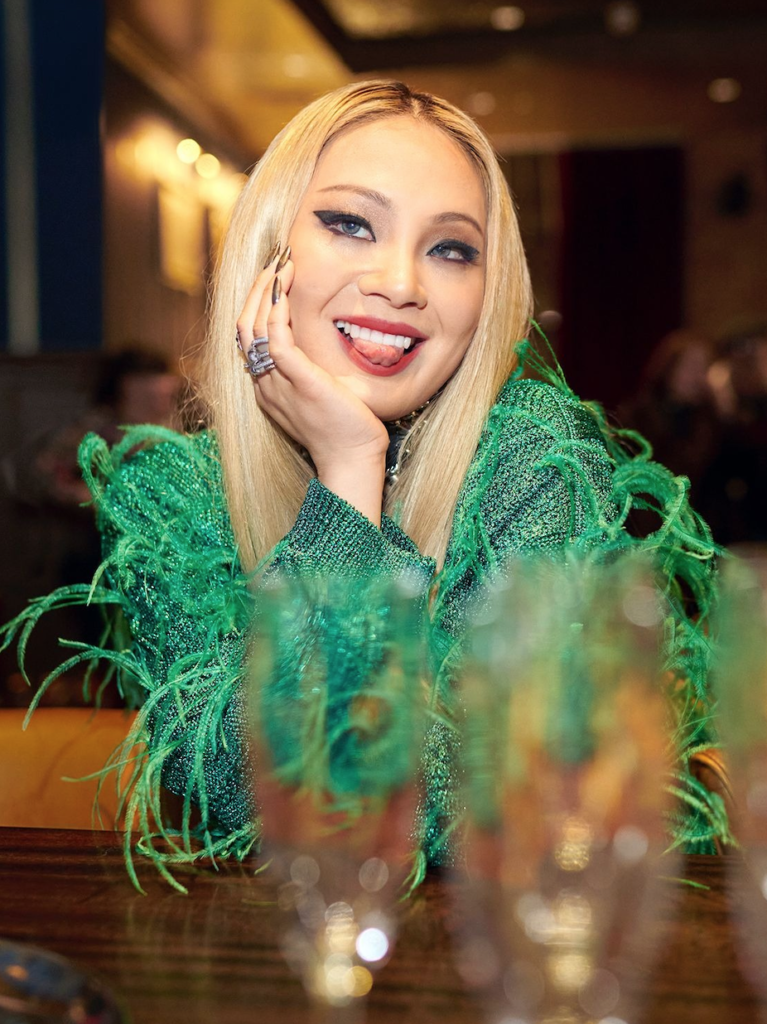Pop Star and Producer Rostam Batmangli Talks Iranian Heritage and His New Album Changephobia
Words by Oliver Keens
Photography by Nick Walker
Rostam is the fluid and futuristic pop star and producer our decade needs. Oliver Keens meets the kinda sorta Vampire Weekender to talk Iranian heritage, his new album Changephobia and to compare rice cookers.
Have you ever been to a wedding and sat at a table of strangers only to quickly realize that the hosts have obviously thought you’d get on like a house on fire with the person seated next to you? I had that feeling just before meeting Rostam, who like me, is an Iranian-heritage, queer dude with a penchant for indie songs with nice drums.
As an attempt to instantly dazzle my 37-year-old interviewee with my raw, hairy-chested Irani-ness, I grabbed a giant rice cooker out of the kitchen and held it up moments into our video chat. His response? No words. Just a casual pan over the shoulder at his own, stood with pride of place on his kitchen countertop at his home in LA. “We’ve been in Mexico and have been cooking a lot of white rice as a remedy for traveler’s diarrhea,” he tells me at one point in his typically engaging, friendly and purposeful way. There’s more to Iranian cooking than a mere diarrhea cure of course. And there’s definitely more to Rostam Batmanglij than Vampire Weekend.
When you Google the name “Rostam” you’re presented with two eminent Iranian men with the same name. One is your favorite queer Iranian-American producer. The other is the heroic yet tragic national hero of Persian mythology. Rostam was a mighty and muscly warrior who is doc- umented in the Shahnameh, an ancient epic poem that documents the region’s pre-Islamic history. My mum calls it the Iranian Lord of the Rings. The Rostam I’m talking to today isn’t a classic hero in the mythological warrior mold but strangely he is kinda heroic none- theless. Kids in the Iranian diaspora don’t have a weight of cultural figures in the entertainment field they could point to as inspirations. Anyone who can successfully navigate two competing cultures and identities as well as make it in music is a hero to me.
Rostam’s mother, Najmieh Batmanglij, is a successful chef and writer of cookbooks on Iranian cuisine. In 2016, she cooked at the White House for a celebration of distinguished Iranians in the United States. “So you were the coolest person there, right?” I enthusiastically ask Rostam nodding my head like a parent trying to prompt their kid to answer in a beauty pageant. “No, probably Yara Shahidi was”, he says, with almost an inevitable humility, of the young actor and star of Black-ish and Grown-ish. Hmm, okay fine, I think, but has she worked with Frank Ocean? Exactly. I’m unashamedly proud that there’s someone of Iranian descent who manages to sit in the upper echelons of the music scene. He’s helped shatter a door but to be fair to him, Rostam has more practical hopes for Iranian inte- gration into American society. “I’d still like to see a few more Iranians in government though. There are very few at present. That kind of representation really matters. I always want to be someone who’s identity travels with them. I never want to downplay it.”
I’m far too polite to mention this to Rostam as we chat but the first time I ever heard Vampire Weekend was at a party where after 15 minutes or so someone shouted: “Will someone turn this preppy white bullshit off!” It took years for music fans to understand Vampire Weekend wasn’t a totally white band at all, or indeed con- ventionally American either, thanks to the band’s mix of Hungarian and Italian descent. “I understand that I do pass as white,” Rostam reflects today. “Clearly when I began a career in music and put in the context of three bandmates who were unquestionably white, I was seen as someone who was white-passing but not white-identifying.” It’s hard for both of us not to dwell on how quickly things have changed for white- not-white Iranians in our lifetime: “In the 80s and 90s there were some Iranians who identified as white as a means of survival. Especially around the time of the hostage crisis (1979-81) or Iran-Contra, [it was] a racist era where ‘if you don’t pass as white, you may not fit in in America.’”
It’s not a surprise that Rostam’s heritage informs his thinking today. What’s interesting though is how he’s noticed how the past informs the future in strange, subtle ways, “As someone whose parents survived a revolution and made it to America as a place to reboot their lives, it’s possible I was raised to fear change.”
This is the germ of what Rostam calls Changephobia – which is also the title of his latest album– his sec- ond solo album after 2017s Half-Light. “I met someone on a park bench around five years ago who said, “change is good, go with it.” I’d never really consid- ered it. People said, ‘what do you mean you’ve never heard that expression before?’ but I hadn’t!” How did that manifest itself? “I wanted more change. Even just if that meant musically on this album. I wanted to change everything. I didn’t want to do any music with harpsichords and cellos for a while!” And it’s true: Changephobia is a well-stocked sonic buffet, dripping in sax, with sexy cooing standouts like “Bio18” and woozy takes on rock like “4Runner” and “These Kids We Knew”.
Rostam’s current status with Vampire Weekend is a thing of modern fluid reality. He’s in the band when he’s in it and when he’s not, he’s not. It’s a positive, grown-up and non-binary approach. It’s also the antithesis of traditional rock with its obsessions about people leaving bands, bands breaking up and the often pathetic dramas that entails. Rostam worked with the band in a modest yet meaningful way on their 2019 album Father of the Bride.
Yet he’s also cultivated a really strong cohort of colleagues and collaborators that reflect his sta- tus as a producer who defines the sounds of the early 2020s. Changephobia comes after a run of stellar collaborations. He brought out a lilting, playfully intimate side to Haim as producer of their last album, Women in Music Pt. III. He worked with Clairo on her Grammy-nominated debut Immunity, making it a kaleidoscopic, genre-smushing smash. He recorded an album in 2016 with fellow Washington-born icon Hamilton Leithauser of The Walkmen, titled I Had a Dream That You Were Mine while he’s also invigorated the sonics of artists like Solange, Charli XCX, Carly Rae Jepsen, Santigold, Lykke Li, Maggie Rogers and Frank Ocean – for whom he produced Blonde highlight, “Ivy”.
What do all these different and diverse acts say about his quirks as a producer? Well according to Rostam it’s that he’s speedy. “I like to work fast,” he explains. “Most of the work I do is in my own studio and I always have the mics up, so I can record gui- tar or piano or vocals in the span of a few seconds. I need to chase down an idea as soon as I have it.”
In stark contrast to the creaking and angu- lar sounds that bled through Vampire Weekend’s work, Changephobia is a mellow, softly-sculpted thing of beauty. A key ingredient is Rostam’s keen
use of filters– the process most often heard in dance music of either killing or swelling the bass or treble in a song. “It’s not something every producer likes. I can’t imagine T Bone Burnett likes it, for example,” he says of the veteran American producer. Burnett probably never had a teenage epiphany with the kings of French fil- ter house either: “Buying that first Daft Punk album [Homework] from the Virgin Megastore in Paris as a 14-year-old altered the course of my creative life,” he says by way of an explana- tion. “Somewhere along the way, a seed planted that said: ‘it’s never a bad time to filter a sound in a song.’” Rostam loves a bit of heavy bottom end too. His songs are lushly bathed in proper, speaker-rattling bass and he’s enthused that I can see a link between jungle and drum n bass and Changephobia’s fast and frantic “Kinney”– but genres are seldom a priority in his work. “I don’t really like genre as something you have to be allegiant too,” he explains. “It’s why I don’t like the term ‘indie’ so much because to me, indie signifies bad sounding drums. I feel like if there’s one thing I hope I’ll be known for it’s never pro- ducing songs with bad drum sounds. I want that on my tombstone: He produced a lot of songs, none of which had bad drum sounds.
@matsor

